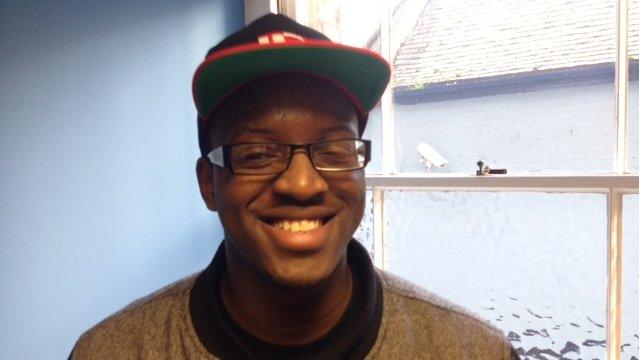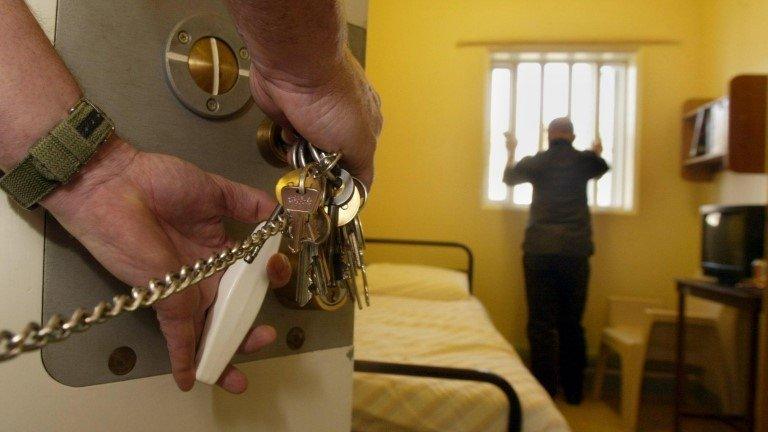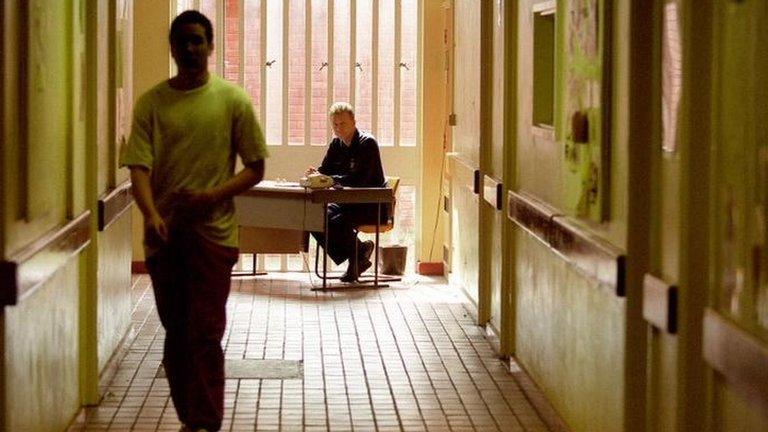Young criminals 'should face tougher sentences'
- Published
Prisons
Most young adults believe young offenders should receive tougher prison sentences, a survey for Newsbeat suggests.
Some 67% said 16 and 17 year olds should be given the same jail terms as adults for similar violent crimes.
Meanwhile, 72% think over 18s should be sent to adult prisons, not Young Offenders Institutions.
Campaigners said the findings showed a lack of appreciation for the needs of young criminals.
"Locking up young people in adult jails with nothing to do is the surest way to create the hardened criminals of tomorrow," said Juliet Lyon, director of the Prison Reform Trust.
"For many young offenders, intensive community approaches that nip offending behaviour in the bud are more effective than a prison."
'No idea'
The figures were compiled by Comres, which surveyed 1,000 18-30 year olds across the UK.
Of those polled, 62% said they thought prison conditions in the UK were not tough enough, compared with only 3% who said they were too tough.
Curtis, 28, from Suffolk, who served just over two years in prison, told Newsbeat that people who have not experienced prison have "no idea what they are talking about".
"Are we saying that staff need to be more brutal, or that we need to limit their [prisoners'] liberties? I don't think prisons need to be tougher, there needs to be a lot more focus on creative and innovative methods for rehabilitation," he said.
Offenders aged under 18 receive shorter sentences in the UK because authorities believe the focus should be on rehabilitation, welfare and support instead of punishment.
The same is true for those aged 18-20. Most are sent to Young Offenders Institutions where more opportunities for education are offered.
The Sentencing Council for England and Wales said it was important to note that although the survey referred to serious crimes, most offences carried out by young people were minor.
Its figures from 2009 show only 3% of crimes committed by young people were serious enough to be dealt with at a crown court.
Childhood traumas
Danny Kruger, chief executive of crime prevention charity Only Connect, said while the justice system should hold young offenders to account, it must also support their rehabilitation by responding directly to their specific needs.
"The fact is - as we know from working with young people - they often think, feel and behave differently from adults. They have had less time to recover from any traumas in their childhood; their brains are still developing and they are more drawn to risk; it's no surprise that young people are more likely to harm themselves and others than adults," he said.
Despite the other findings, three quarters said overall rehabilitation was more important than punishment.
Justice Minister Jeremy Wright said it was right that the most serious or persistent young offenders were sentenced to custody and those that commit violent offences faced tough sentences.
"It is unacceptable however that nearly three-quarters of young offenders who leave custody go on to reoffend - this needs to change. That's why we are doubling the amount of education we give those in Young Offenders Institutions and why we are reforming the youth estate with the introduction of Secure Colleges.
"These new establishments will tackle the root cause of offending by giving people the skills and self-discipline to gain employment and training upon release and turn their lives around."
In other findings, 58% of respondents said they supported the death penalty for serious crimes such as terrorism and child murder. This is despite successive surveys in the last ten years showing a steady decrease in support for capital punishment in the UK.
Meanwhile, nearly a third of women, 29%, think that police and criminal justice system do not take allegations of sexual assault seriously enough, compared to only one in six men of the same age (18%).
And when asked whether those accused of a sexual assault or rape should receive automatic anonymity until they were convicted, 58% said in an ideal world they would but 61% acknowledged it would be hard to implement in a digital age.
BBC Three will be running a season of programmes about crime and punishment starting on Monday 17 March at 21:00 GMT. Find out more about all the programmes in the season here.
Follow @BBCNewsbeat , externalon Twitter
- Published14 March 2014

- Published6 February 2014

- Published17 January 2014
